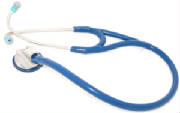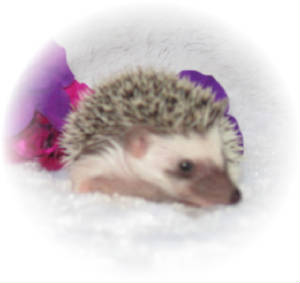|
Hedgehog, sugar glider, sto, short-tailed opossum, duprasi, squirrel, mouse, mice, rats, rabbit,
bunny, chinchilla, hamster, gerbil, rat, birds, guinea pig, degu, jird, dormouse, lemming, jerboa, prairie dog, chipmunk,
ferret, skunk, agouti, belgian hare, english lop
Hedgehog, sugar glider, sto, short-tailed opossum, duprasi, squirrel, mouse, mice, rats, rabbit,
bunny, chinchilla, hamster, gerbil, rat, birds, guinea pig, degu, jird, dormouse, lemming, jerboa, prairie dog, chipmunk,
ferret, skunk, agouti, belgian hare, english lop

We are not Veterinarians! We are breeders! This page is not intended
to replace the advice of a veterinarian
There is little doubt that we have been privy to a lot of information regarding
Veterinary procedures over the years, but if there is one thing we have learned is that the more we learn about Veterinary
health care, the less we actually know. Medical knowledge, whether for humans or animals is forever evolving. While we can
share some of our own experiences, Veterinary medicine should always be left up to the Veterinarian, who is a licensed person,
qualified to conduct surgery and prescribe medicine for animals. We strongly feel that anyone who cares for an animal needs
to have a good Veterinarian to rely on that can help manage their pet’s healthcare.
Wobbly Hedgehog Syndrome (W.H.S.)
Typically we choose not to get into the aspects of Veterinary care. In the
case of Wobbly Hedgehog Syndrome, we feel that we need to share some basic information with the people considering getting
a hedgehog; some of the facts and myths surrounding the disease.
Wobbly Hedgehog Syndrome is a progressive disease, which over time attacks
the gray matter of the brain and causes the muscle tissue to deteriorate. Visual symptoms include muscle atrophy and shaking,
often accompanied by loss of appetite and general lethargy. Typically the atrophy becomes apparent in the hindquarters before
graduating to other parts of the body. The disease exists in wild and captive populations and is most often associated with
African and European Hedgehogs.
At this time, there is not a guaranteed way to prevent W.H.S. and there are
no known tests that can be done on living hedgehogs and to-date there are still no cures for it. The only way to confirm W.H.S.
is after the animal dies. A necropsy is the only way you can find out for sure if a hedgehog has succumbed to W.H.S.
It is simply an awful disease that we know very little about. It is not as
common as one might think and far too often W.H.S. is suspected and self diagnosed by people who are not qualified to make
the diagnosis. When this happens, it can cause panic and misleads people into believing that W.H.S. is prevalent in all hedgehogs.
This is just not the case!
There is a lot of speculation regarding W.H.S.. Some believe it has a viral
component, others believe it is an inherited disease similar to diseases such as heart disease, some cancers, diabetes etc.
Some speculate that both parents need to carry the gene or maybe just one of them needs to carry it, in order for it to be
passed on. Some people feel that it could be related to diet, pollution, etc., but the reality is that no one really knows
for sure.
In some cases W.H.S. may show up in a litter by affecting one sibling but
not other littermates, even though it has never been suspected or diagnosed in previous generations.
It is not likely that you can tell from a pedigree that W.H.S. or other genetic
pre-depositions exist in a line. Whenever anyone is considering taking on the responsibility of a new pet, we must rely on
the level of trust we have towards the breeder. If the breeder tells you that they have concerns about a certain line, then
unless you are a person willing to take the risk, I strongly suggest that you choose another animal from a different line.
Even then a hedgehog breeder can not guarantee that a hedgehog does not have W.H.S.. They can only guarantee that if your
hedgehog dies and a necropsy is performed (usually at your expense) they will replace the hedgehog for you.
When a pet lover loses a pet, very few choose to pay to have a necropsy performed.
They are grieving their lost pet and are not even in the right state of mind to think about getting a replacement pet.
If you suspect that your hedgehog has W.H.S. you really need to seek out the
advice from your Veterinarian. Don’t expect a cure! Don’t expect a confirmed diagnosis! Your Veterinarian may
be able to suggest an action plan that can help your pet live as comfortably as possible. In some cases there are a few things
you can do to help your pet to be more comfortable. Diet supplements, muscle massage, temperature and humidity control can
help with comfort but will not cure the disease.
All disease progress at different rates. Although your level of commitment
may make the difference to your pet’s quality of life, we humans need to realize that there are so many diseases that
we know so very little about. Sometimes we need to realize that diseases are very much a part of all life. Many of which are
beyond our control. With any form of disease, if after all attempts have been made to keep an animal comfortable and pain
free, you and your Veterinarian may need to discuss Euthanasia (such a nasty word) as it may end up being the most humane
option.
NOTE TO BREEDERS…
- Never breed any animal if you suspect it to be unhealthy.
- Never breed any animal that knowingly can or will pass on unnecessary health
risks or genetic flaws to it’s offspring.
- Never sell any animal to anyone without full disclosure. The more informed
the buyers are the better they are prepared for anything that can happen.
NOTE TO BUYERS!
- Some breeders do guarantee against this disease but do not be misled or fooled into
believing that any hedgehog is free from this awful disease. Some breeders guarantee against this disease but they insist that
if your hedgehog dies you will need to have a necropsy performed by a veterinarian at your own expense. Then if it is
found to have died from this disease, they will replace the hedgehog. Be very careful; necropsies are quite expensive.
Often more expensive than the original cost of the pet and usually breeders will not pay for a necropsy.
-
If anyone who purchases / purchased a hedgehog from us finds that his or her hedgehog
has succumbed to W.H.S. and a licensed veterinarian has diagnosed it via a necropsy, we would certainly appreciate being notified.
(I am sure most ethical breeders would too). Since 1986 we have never had a confirmed case of W.H.S. BUT...we know that
do to the nature of disease process we could never fully (100%) guarantee that one of our hedgehogs won't
one day be diagnosed with it. If we ever even suspected W.H.S in one of our breeding lines we would not continue
breeding that line.
 |

